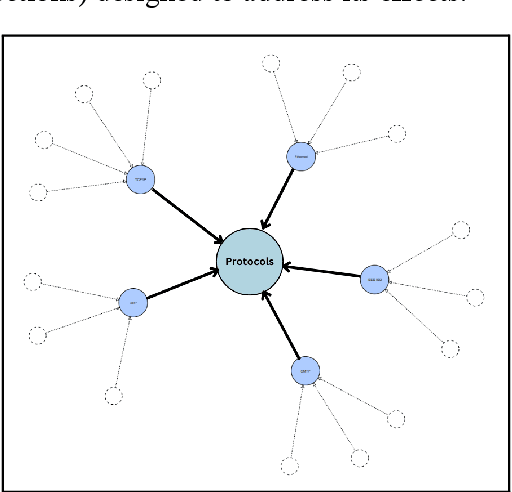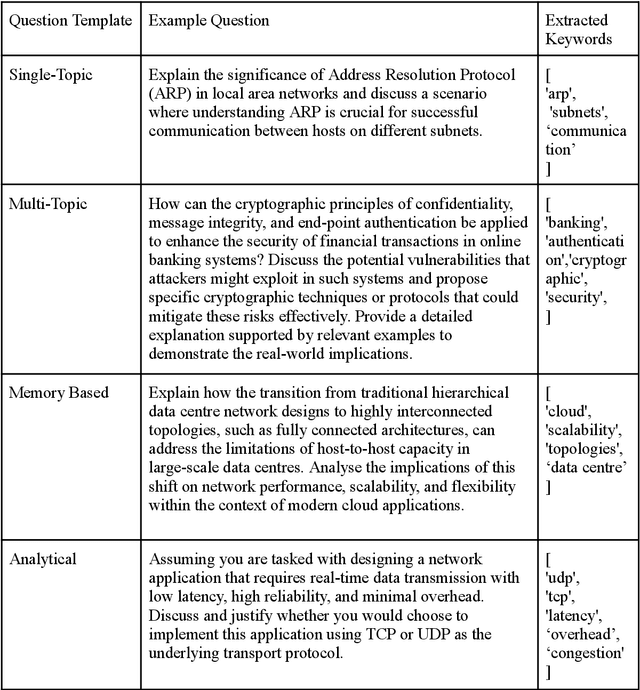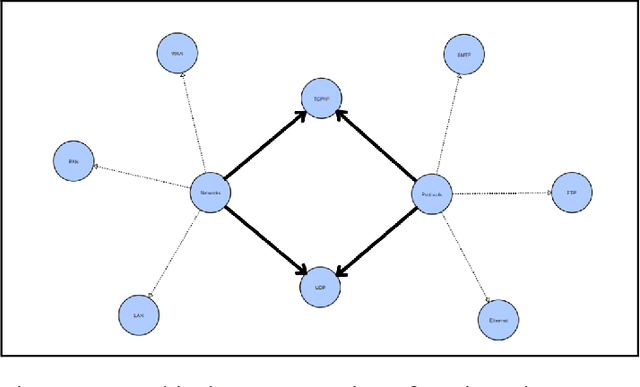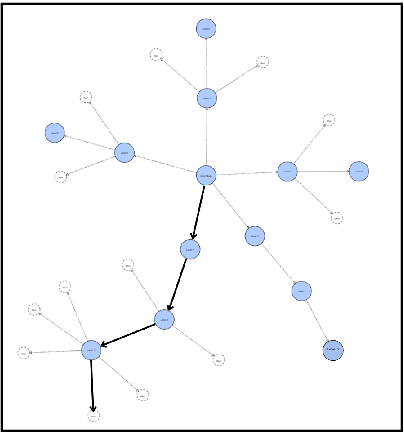Sujay R
Multi-Faceted Question Complexity Estimation Targeting Topic Domain-Specificity
Aug 23, 2024



Abstract:Question difficulty estimation remains a multifaceted challenge in educational and assessment settings. Traditional approaches often focus on surface-level linguistic features or learner comprehension levels, neglecting the intricate interplay of factors contributing to question complexity. This paper presents a novel framework for domain-specific question difficulty estimation, leveraging a suite of NLP techniques and knowledge graph analysis. We introduce four key parameters: Topic Retrieval Cost, Topic Salience, Topic Coherence, and Topic Superficiality, each capturing a distinct facet of question complexity within a given subject domain. These parameters are operationalized through topic modelling, knowledge graph analysis, and information retrieval techniques. A model trained on these features demonstrates the efficacy of our approach in predicting question difficulty. By operationalizing these parameters, our framework offers a novel approach to question complexity estimation, paving the way for more effective question generation, assessment design, and adaptive learning systems across diverse academic disciplines.
 Add to Chrome
Add to Chrome Add to Firefox
Add to Firefox Add to Edge
Add to Edge